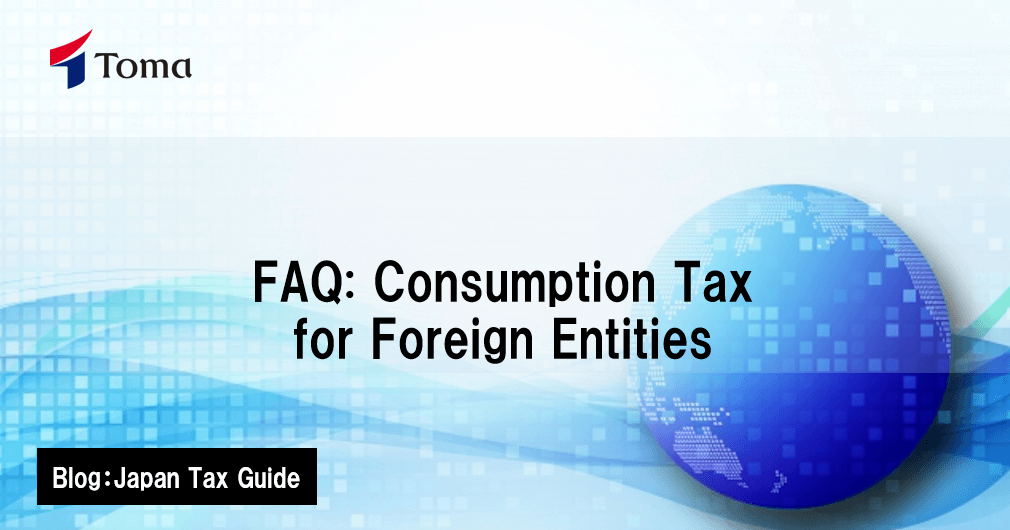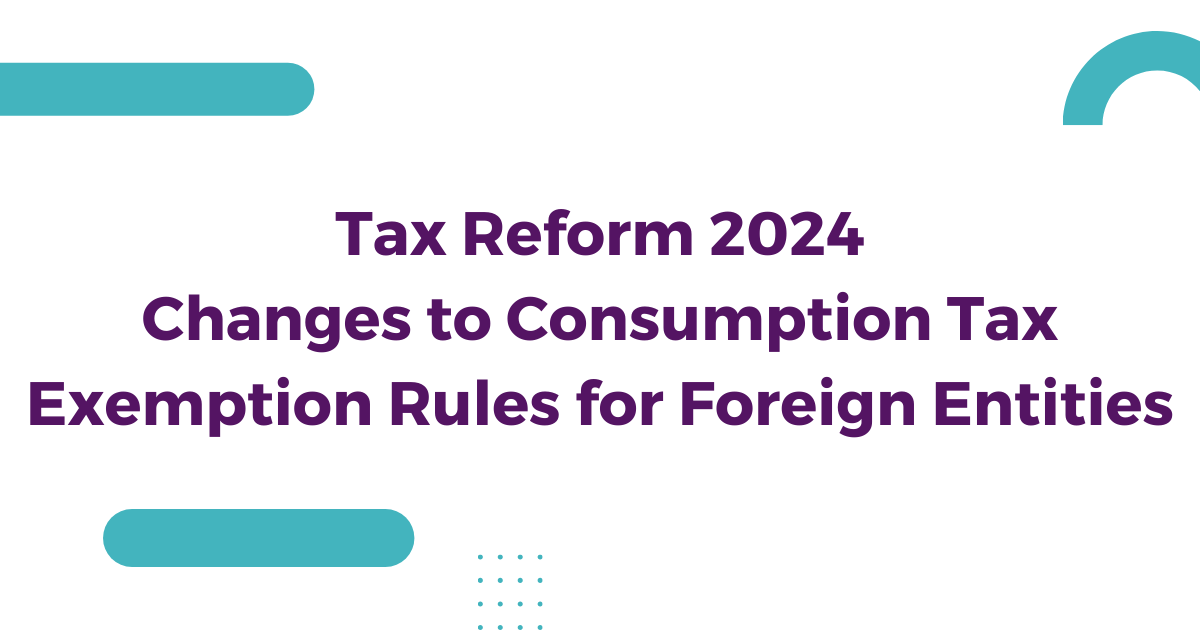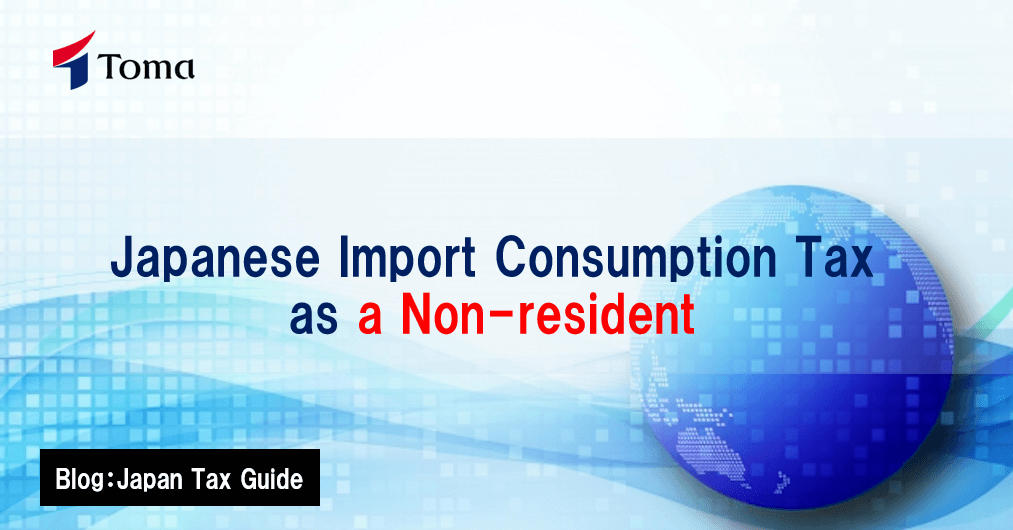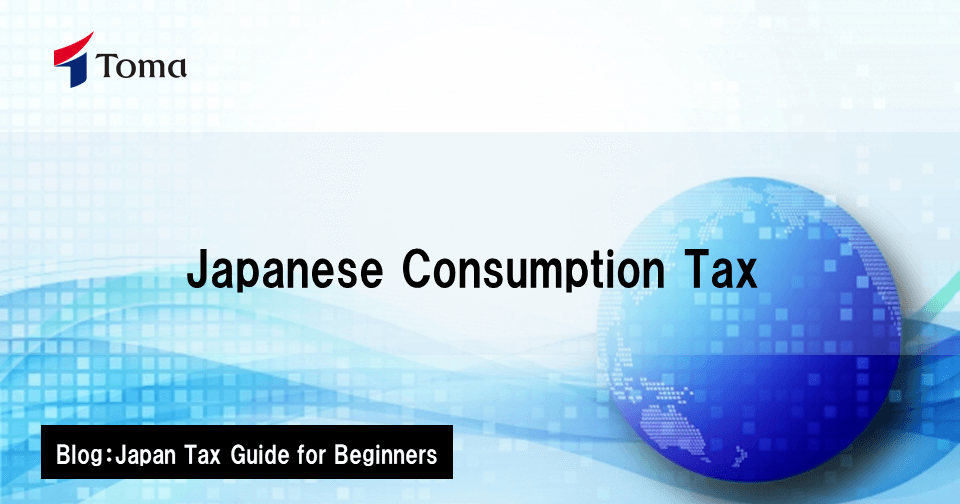Contents
Answering the questions TOMA frequently receives from our overseas customers regarding Japanese consumption tax, including filing requirements, exports and refunds, and cross-border transactions.
Consumption tax filing obligation
We are a foreign company operating in Japan. Do we need to file consumption tax returns?
A foreign company selling goods or services or importing goods into Japan may be liable for consumption tax, regardless of whether the company has a permanent establishment in Japan.
For imports, import consumption tax is declared and paid to the customs office at the time of import (often invoiced to the importer later if handled by a customs broker). In this case, the separate filing of a consumption tax return is not required.
For the sale of goods or services in Japan, an entity must file consumption tax returns and pay consumption tax if their taxable sales within the base period (usually the financial period two years prior to the current one) is over 10 million yen—the same treatment as a Japanese company. Please see our blog post on consumption tax for more information regarding Japanese consumption tax (JCT) enterprises.

Consumption tax refund and export tax exemption
I currently buy inventory in Japan and export it overseas. What is the process for receiving a refund for my purchases?
An entity may be eligible for consumption tax refund if the consumption tax they pay on taxable purchases exceed the consumption tax they charge on taxable sales within the taxable period. While the sale of assets in Japan are taxable, export sales are tax-exempt, meaning an entity that mainly exports goods is likely to receive a consumption tax refund.
A consumption tax return must be filed in order to receive a consumption tax refund. A company that does not have taxable sales of 10 million yen or over can elect to become a JCT enterprise to submit consumption tax returns. In addition to being a JCT enterprise, the company applying for a refund must keep documents proving goods have been exported.
Please see below for the required documents for different types of exports. With the exception of number four, documents listed must show the name of the entity applying for a refund.
1. General exportation: Export permit, victualling bill, or export certificate of customs
2. Export by post (more than 200,000 yen): Export permit or export certificate of customs
3. Export by post (less than 200,000 yen): Certificate of acceptance of parcel or shipping slip receipt
4. Export by third party: Export permit and notification of ineligibility for consumption tax exemption on exports (issued to the third party).

Cross-border supplies of electronic services
I am an overseas entity supplying services through the internet to Japanese customers. What consumption tax obligations do I have?
In regards to the “supply of services via electronic and telecommunication networks,” the National Tax Office lays out different treatments depending on if the service is supplied to consumers (B2C) or businesses (B2B).
“Supply of services via electronic and telecommunication networks” includes the following:
1. Distribution of e-books, digital newspapers, music, videos, and software (including games) via the internet
2. Services that allow customers to use software and databases on the cloud
3. Services that provide customers with storage space to save their electronic data in the cloud
4. Distribution of advertisements via the internet
5. Services that allow customers to access shopping and auction sites on the internet
6. Services that allow customers to access a place to sell game software and other products on the internet
7. Website used for reservation of accommodation and restaurants
8. English lessons provided via the internet
Please note that “supply of services via electronic and telecommunication networks” does not include services that are ancillary to the provision of another service, such as software development where the final product is delivered via the internet, collection or analysis of information where the results are reported via the internet, etc.
For B2C transactions, similar to domestic entities, the service provider is required to file a consumption tax return in Japan if their taxable sales within the base period is over 10 million yen.
On the other hand, for B2B transactions, the receiver of the service is responsible for filing a consumption tax return on behalf of the supplier, a process known as the “reverse charge mechanism.” In this case, the foreign business providing B2B electronic services is required to notify the service recipient beforehand that the transaction is subject to the reverse charge mechanism.
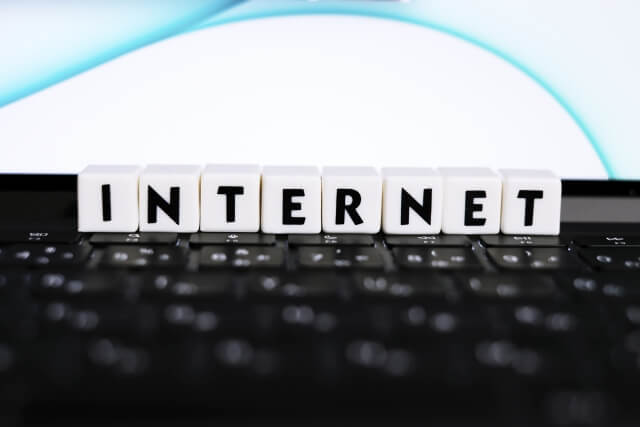
TOMA’s Services
TOMA Consultants Group provides comprehensive service relating to consumption tax, including consultation regarding consumption tax refunds, filing of consumption tax returns, submission of notification forms, and consultation on the Qualified Invoice System. Please contact us through the form below for a free consultation.
On-demand Seminar Information
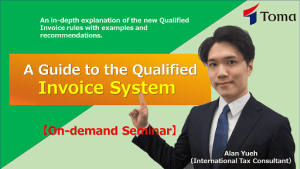
A Guide to the Qualified Invoice System (On-demand Seminar)
The Qualified Invoice System, starting October 2023, introduces new changes to the Japanese consumption tax rules and will affect many businesses across Japan.
The system requires a redesign of existing invoices, as well as a review of the business’ consumption tax status and suppliers.
This online seminar aims to give you an overall understanding of the Qualified Invoice System and provide measures to help you navigate the new requirements.




